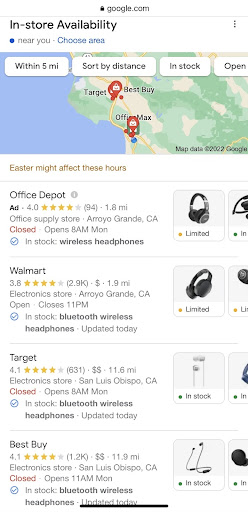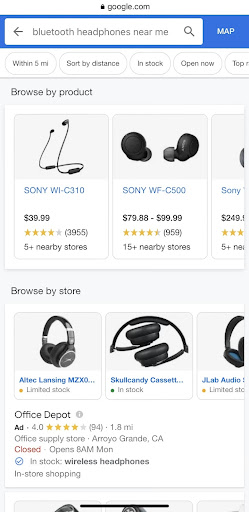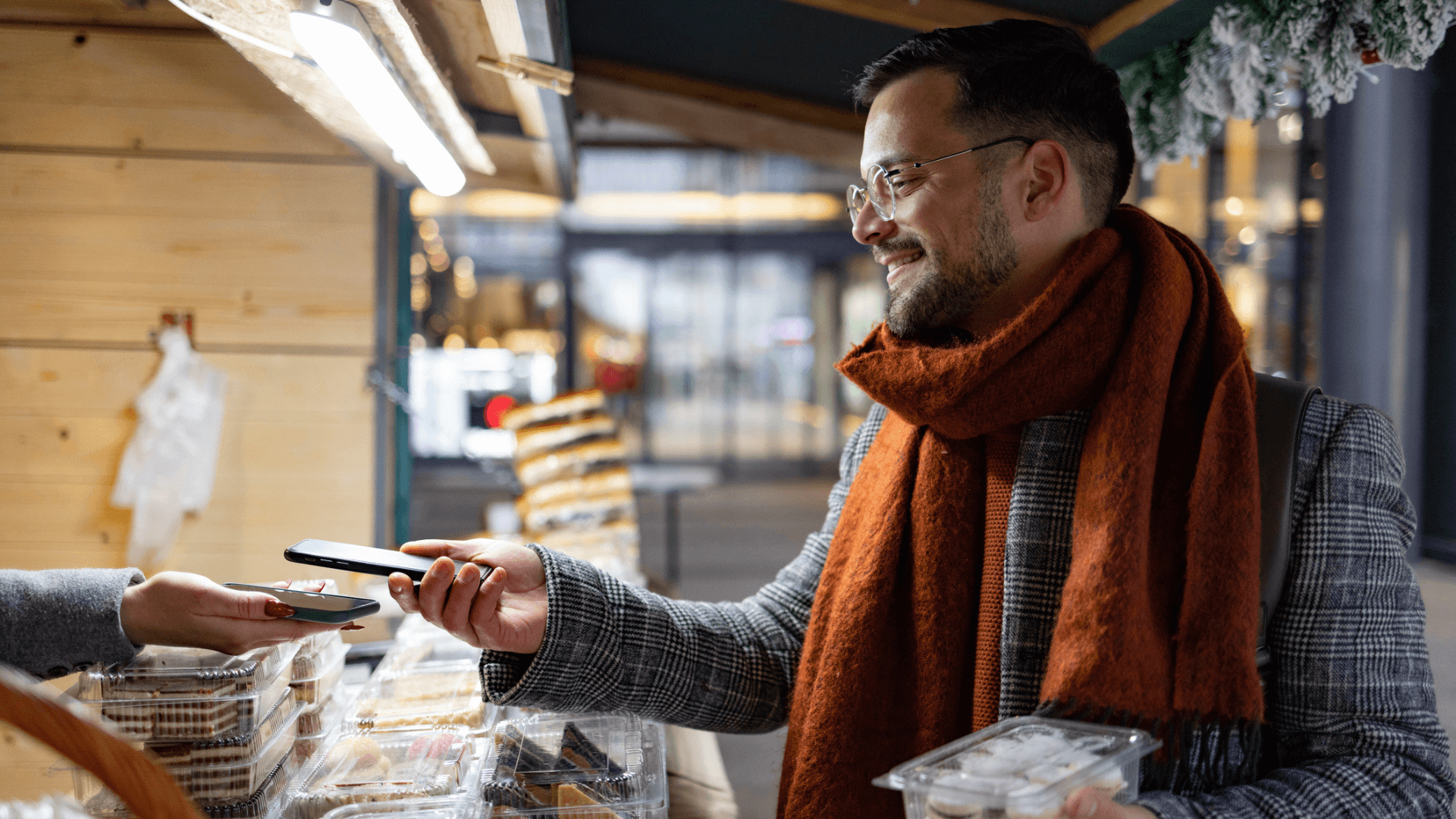What Are AI Agents? And Why Are They Critical to Local Marketing Success?
Local Memo: Yelp Adds Eco-Friendly Attributes for Earth Day
In this week’s update, learn about Yelp’s eco-friendly business attributes; Google’s migration tool for GA4; the state of local search in 2022; new product search options in the Local Finder; how Google uses Vision AI in local; and Meta’s ten-year plan for the Metaverse.
Yelp Adds Eco-Friendly Attributes for Earth Day
Citing that 60% of consumers consider sustainability to be a major factor in their purchase decisions, Yelp is launching a new set of eco-friendly business attributes. The company says the launch is timed to coincide with Earth Day. The attributes are free and can be configured by Yelp users as search filters to help identify matching businesses. They include:
- EV charging stations available
- Plastic-free packaging
- Provides reusable tableware
- Bring your own container allowed
- Compostable containers available
Yelp also cites “Bike parking” and “Vegan” as relevant attributes that were previously available. Attributes can be enabled under the Amenities section of Yelp profiles. Yelp encourages businesses to provide further evidence and information about sustainability practices through photos and the business description.
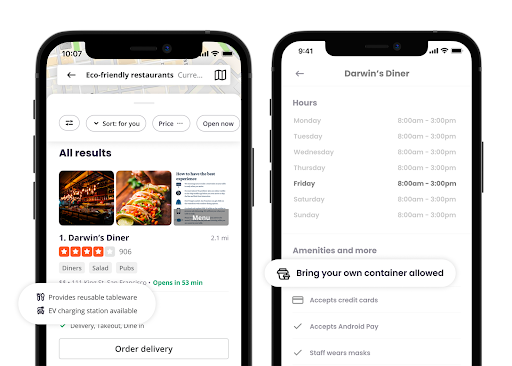
Courtesy Yelp
Google to Offer Migration Tool for GA4
Google is offering a migration tool designed to help users of Google Analytics 3 transfer their conversion goals to Google Analytics 4. GA3, also known as Universal Analytics, is slated to sunset as of July 2, 2023. The migration tool should help to ease some of the pain of transitioning to GA4, which the SEO community had resisted in the past due to the perceived complexity and lack of documentation in the new platform. The migration tool lets users recreate both Destination and Event goals in GA4 with a few simple steps, but does not support other goal types such as Pages/Screens per Session and Duration. As we’ve noted before in this space, analytics data also will not transfer from GA3 to GA4, meaning that SEOs planning for the transition will need to start using GA4 fairly soon in order to be able to report on historic data.
The State of Local Search in 2022
Greg Sterling has provided a helpful distillation of the local search findings in Semrush’s massive new State of Search 2022 report. The report analyzed about 13,000 business listings and offers the following findings:
- 70% of Local Pack listings and 73% of Google Maps listings are within two miles of the searcher
- Only 6% of listings are more than 10 miles away
- The average star rating of the top 3 listings in Maps is 4.3; in the Local Pack it’s 4.4
- The average review count for the Local Pack is 446; in Maps, 773
Some of these findings are directionally similar but not identical to those we’ve derived from our own research. SOCi’s recent analysis of around 8 million listings, for example, finds the average review count in the Local Pack to be 353 with an average star rating of 4.1. It’s worth noting that averages do a poor job of accounting for differences by industry and region, but the overall conclusion holds that businesses must have a significant number of positive reviews to be competitive.
Google’s Local Finder Now Also a Product Finder
Google has added “Browse by product” and “Browse by store” carousels to the Local Finder, allowing users to quickly search product inventory in nearby stores. For select product searches, Google will display the “Browse by product” carousel at the top of the Local Finder, above the business listings typically found there. The product carousel shows popular products with indicators of local availability, such as “5+ nearby stores.” Below the product carousel, “Browse by store” offers more typical business listings, but with prominent product carousels added to the top of each, above the business name and summary information.
In a test search for “bluetooth headphones near me,” I encountered product ads on page one, along with a Local Pack containing prominent shoppable product photos and, beneath that, a “Popular products” carousel. Clicking through the Local Pack brought me to the new “Browse by product” / “Browse by store” interface. The overall impact is of SERPs saturated with local product information – underlining claims recently made by Mike Blumenthal that Google’s local graph and shopping graph are now closely intertwined.
Products everywhere in the local SERP
How Google Uses Vision AI in Local Search
In a new column Mike Blumenthal covers the history and current importance of Google’s Cloud Vision AI, its sophisticated technology for understanding the content of images. Blumenthal notes that Google has been working on image recognition for more than a decade, their efforts dating to the days of Google+. With more than 4 trillion photos in its current repository, Google has a huge dataset with which to train machines to understand images. The Cloud Vision AI demo tool lets you see the depth of understanding Google can apply to images – not only their content but the sentiments they express, their likelihood of being inappropriate or offensive, and many other details.
Google uses its understanding of images to serve up local search results that match images to search intent, showing images of products in the Local Pack that match product keywords entered by the searcher. Google does this to make search more relevant and more likely to result in a transaction. According to its own research, 90% of searchers are more likely to choose a business that displays prominent photos in search, and 74% of shoppers will conclude that a business is more reputable when its listing displays photos.
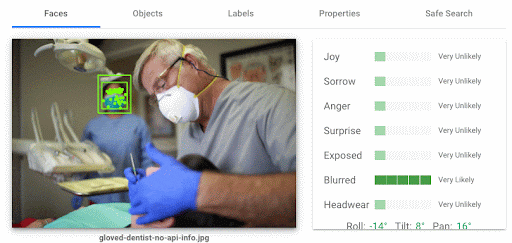
Google’s Cloud Vision AI demo tool
Meta’s Ten-Year Roadmap to the Metaverse
Meta’s ten-year plan to bring the Metaverse to reality has been leaked to the Verge by Meta insiders. To make Mark Zuckerberg’s vision a reality, Meta intends to push hard for greater adoption of its VR headsets and upcoming AR glasses. The glasses, currently being developed under the codename “Project Nazare,” will operate without needing to be paired to another device, and will utilize wrist-based controls. A lower cost version, “Hypernova,” will be tethered to a smartphone.
The wristband controller, which would be used in both models of AR glasses, makes use of electromyography (EMG) to measure electrical pulses in the arm. The intent is for the user to control the device using subtle commands communicated via the wrist muscles. Though it all sounds a bit far fetched, Zuckerberg is said to be placing huge bets on the success of the technology, intending to saturate the market in the next decade and to make AR glasses the equivalent for Meta of the iPhone for Apple.
Another key feature of the Metaverse will be holograms, according to the Verge’s report: “A marquee feature will be the ability to communicate and interact with holograms of other people through the glasses, which Zuckerberg believes will, over time, provide people with a more immersive, compelling experience than the video calling that exists today.”
